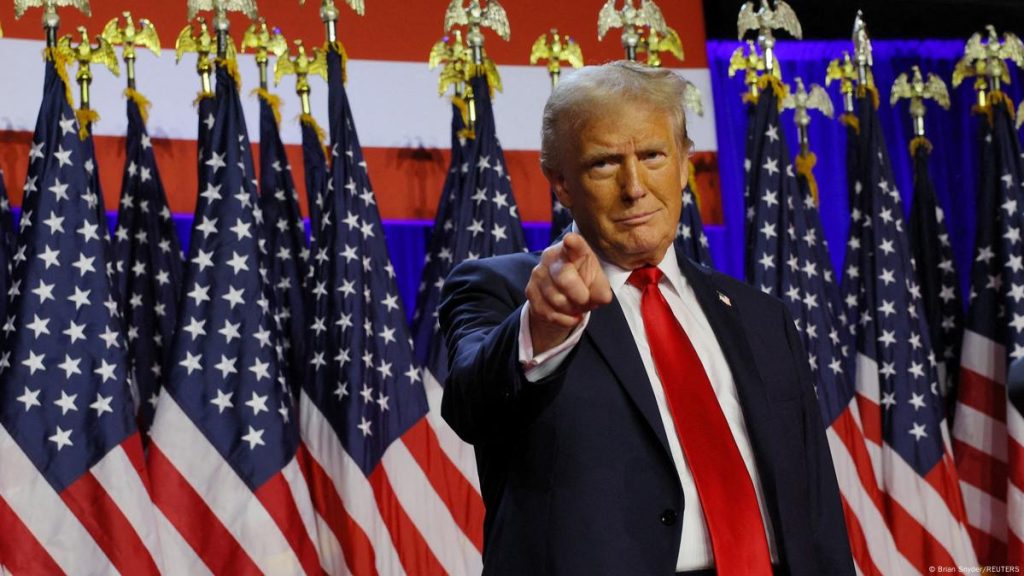'Pragmatism will be Trump's priority'- opinion from Baku
Trump will prioritize pragmatism in Caucasus
The U.S. presidential election results are in: the Republican candidate Donald Trump has become the 47th president of the United States.
Around the world, including in Azerbaijan, people closely followed the election in this global superpower.

Azerbaijani political analyst Farhad Mammadov, in an interview with the independent channel Modern Talking, commented on possible changes in U.S. foreign policy towards the South Caucasus region under Trump.
“More China, less Europe”
“It can be said with certainty that Trump’s foreign policy will be more focused on China and less on Europe. That’s for sure. Containing China with economic tools and reducing subsidies and funding for the military in Europe are essential elements to consider,” noted Farhad Mammadov.
He also believes that Trump will address all the issues that were on Biden’s administration’s agenda.
“The truth is, it’s not yet known who he will work with on foreign policy. It’s important to know who will lead the Department of State. As you remember, during Trump’s last presidency, almost half of it resigned, and there was a shortage of personnel. I have no doubt the same will happen this time.
Less Europe means the EU will be forced to become more independent and establish itself as a geopolitical entity. We’ll see how they manage it. Without the UK, the EU will have a hard time, especially considering internal disagreements.”
“South Caucasus became a personal issue for Biden administration”
“Ukraine, the Middle East, and the South Caucasus—these three unresolved issues, which were highly important to the Biden administration, remain. With Ukraine, things are clear; the Middle East is about Israel, that’s also clear, but the South Caucasus has indeed become a personal issue for the Biden administration and particularly for Secretary of State Blinken.
For example, even I was surprised last year—during the peak of the Middle East crisis, when Blinken was shuttling between the capitals of that region—that there were reports of him finding time to call Aliyev and Pashinyan. Or, just recently, before the elections, President Biden sent letters to the leaders of the South Caucasus, urging them to reach a peace agreement by the end of the year. This all indicates that the issue has become personal for Biden and Blinken.”
“Trump’s complex of ‘doing what others didn’t’ will persist”
“Undoubtedly, from the very first days of his presidency, Trump will strive to achieve results on issues that Biden couldn’t complete. Whether he succeeds or not, he will eventually move away from this and look for his own personal legacy. Recall his focus on North Korea and his meetings with Kim Jong-un during his first term. It was important for Trump to show that he was doing what others before him couldn’t.
Regarding Ukraine, Trump’s views are clear. He favors a truce at any cost. Over the past one and a half to two months, we’re already seeing the West leaning toward a truce, but on conditions favorable to Ukraine. I believe this discussion will intensify, and Ukraine will have to focus on these conditions—EU membership, NATO… Although NATO is unlikely, they might make an effort with the EU.
Alternatively, if Russia creates too much trouble for Trump regarding China, Russia will also face difficulties. In other words, he operates in two extremes—either a truce at any cost or, if that fails, supplying things that Biden wouldn’t provide. This ‘I’ll do what others didn’t’ complex will dominate.”
“For Trump, pragmatism will be paramount, including in South Caucasus”
“In our region, I think there will be some activity. This will depend on who gets appointed to the State Department. With the Democrats, it was easier to predict such appointments. For example, Kamala Harris’s national security advisor, Phil Gordon, was one of the contenders, someone who previously worked on our region in the former administration. Right now, it’s hard to say whom Trump might appoint to the State Department.
Of course, the religious aspect will have an influence, and Armenians will try to impact the situation. But which Armenians? That’s also a very important question.
Pashinyan’s supporters, and Democrats from the diaspora had more contact with Biden’s administration. With Trump, we’re currently seeing more interaction with radical leaders of Armenian churches. On the other hand, these are all religious, ideological elements.
If Pashinyan previously engaged with America through his democratic values, now he will have to work with methods uncharacteristic for him. Since he is not a religious person and the church is not very important to him, he will need to take into account the views of his natural opponents.
However, the general approach to the region will be more pragmatic. Firstly, it is geographically distant for the US. Secondly, the contexts of Israel and Iran will play a decisive role. I’m certain that for Trump, pragmatism will take precedence over everything. In other words, they’ll simply start calculating, as accountants used to with an abacus, asking, “What does this give us? – Access to Central Asia. What do we gain there? – We gain a, b, c and d. And how do we access this? – Via the Azerbaijan-Georgia corridor. That’s it. Azerbaijan’s position will naturally grow.”
In terms of the region’s geopolitical and geo-economic value for external players, both in the West and East, Azerbaijan and Georgia fulfill 95% of it.
So, I think we’ll witness the informational veneer—like Christian unity, and so on—will exist the US, but the decisions will be made on a pragmatic basis.
Trump will prioritize pragmatism in Caucasus



















